#Thomas Jefferson Randolph
Text
tumblr fake posts but it's exclusively the US congress 1830s-50s. this will probably not make sense to anyone. it barely makes sense to me: [this is a long post. press j to skip]:
12 notes

forthurricane
guys help three senators from my party are outside my door and its a sunday and im scared i think they want something.
forthurricane
they want me to blackmail the president.
2 notes

henrywisingitup Follow
ohhhh goddddd ok so the coworker that called me a slur at work a few days ago IN PUBLIC just got a duel challenge from a friend of mine aslkdf. istg i hate him so much he's so annoying and he needs to resign or kill himself immediately. i hope he accepts the challenge fucking dies or gets shot up. good RIDDENCE fucking turd pile of trash empty bladder dung beetle puppy bastard LIAR.
welliamgravely Follow
what'd he call you?
henrywisingitup Follow
an aboliti*nist.
congressionalglobe
Congblr Heritage Post.
#congblr heritage post #senblr heritage post #houseblr heritage post #lmao remember when abolitionist was a slur guys #thank u pierceuinfiftytwo #i hate this post #and i think u do too #mod greeley
346,356 notes

Anonymous asked hi i'm sorry if i'm bothering you with this ask but i'm kinda new to this whole politics thing ( was just recently elected by my constituents so this is my first term ) and i would like to know how to get started on congblr? i've been recently appt to the house and i'd love to engage more with the community. do u have any blogs you'd suggest to me?
bunnybrownfrench
hi anon!!!! i'm so glad you're here and in the house too ! ( it's where i am- frankly the Better House of Congress too while we're at it ). sadly i don't know what politics or party u have and i mostly scurry round the democrat side of the aisle more than anything, so i might not be able to help u that much, but i can try to give you some good ones!
@/gowestyoungman is a good source for news, and i'm personally a fan of @/mattbradydaggeurotype but @/geopeteralexhealy has some great portraits!
obviously anyone has to follow @/oldhickory if they're a dem ( or even a whig ) they have great posts, lots of drama and thought provoking articles. a vv funny scroll. @/greatcompromiser is on the opposite side as a whig, but always sophisticated in their arguments, with nice shitposts in between to lighten the mood if you're uneasy about the american system.
@/jquincy and @/oldbullion are mostly serious blogs and if you're a westward expansion fellow, they're top blogs for u to follow. a bit hard at times, but personally i think they have great humor to make up for it ( unlike @/castironman though if you're here for what he posts all the more strength to u i suppose). @/redfoxkinderhook is also a good blog but they rarely post ( and never anything personal).
@/godlikedan is my personal favorite blog. they have everything on there- drama, shitposts, detailed analysis, longposts, important info, aesthetics, etc.
for the rest tho anon, i'll leave it up to you! go out and explore! find the blogs u like; i wish u the best of luck!
15 notes

greatcompromiser
hey guys, look at this BEAUTIFUL new commission i just got from @/mattbradydaggeurotype! it was wonderful to work with you, matt! <333

oldbullion
every day i wake up.
#body horror
555 notes

gallerywatcher Follow
why he kinda......

robrhett Follow
this bitch thirsting over baldy mcuseless LMAO
gallerywatcher Follow
hearing strong words from a guy whos blog is devoted to john c calhoun
244 notes

jrandolphofroanoke
i have herpes.
greatcompromiser
yeah? and????? we know.
jrandolphofroanoke
IN MY EYES. IN MY EYES.
135 notes

bunnybrownfrench asked:
orgies in hell over secession!!
dailyaskstotheussenate
i forgot i asked for poem recommendations for a moment.
0 notes
#ask #bunnybrownfrench

castironman follow
It is with great misfortune that I continue the discourse of the past week, but due to recent actions by certain other accounts, I have to re-engage with this conflict. Again, I would like to say that I stand firm in by belief that the 2BUS should not be re-instated, and that I resent the idea that I have somehow 'flip-flopped' or 'betrayed' my past ideals or other people in regards to what I believe to only be my own rational decisions, all logical as I will prove.
read more
greatcompromiser
oh you've got to be kidding me.
read more
#fucking fuck offfff JOHN #dumbass ungrateful bitch #subtreasury discource #castironman #i shouldve let oldhickory hang you
54,233 notes

theliberator
Hello, all. The Liberator is proud to announce a new mod today to assist in spreading the antislavery message. Presenting: @/frederickdouglass! We're very glad to have a new member to the abolitionist movement, and even more so to have a new mod with us today! We're sure they'll do great work, and we hope you share our excitement as well!
-Mod Garrison and The Liberator Team
theliberator
Hello, all. Disregard this post, since we cannot delete it. Frederick Douglass has been removed from the mod team.
#info #state of the blog #mod update #mod garrison
44 notes

dailyaskstotheussenate
to the anon who asked us when the gag rule is going to be repealed.
the day that john quincy adams finally snaps and decides to murder the rest of his colleagues on the floor.
or never.
#misc
234 notes

thenorthstar
Hello all, Frederick Douglass here. As you might be aware by now, The Liberator and I have since parted. The reason for this is due to several irreconcilable differences, some political, some personal. The drama has since cooled down, but due to the blowout from our conflict, William Lloyd Garrison and I have agreed to since part ways. I am currently running @/thenorthstar on multiple platforms available in my bio.
Garrison and I are still part of the abolitionist movement together, so if you're worried about the harm this might cause to our end goal of emancipation for enslaved people in the United States and the complete destruction of the slave system as it stands today, do not worry. I will be reposting a catalogue of my speeches and writings here that were originally in The Liberator- which you may feel free to mute as you wish. My advocacy for human rights will proceed as normal.
Please do not contact me to ask about just what occurred between The Liberator and I, however, as that is something that I both do not want to discuss, and feel it is unnecessary considering this blog's true content matter.
#info #blog #the liberator #please direct any and all comments about wlg to mr smith from now on
245,234 notes

higherlawseward Follow
Let's settle this once and for all.
littlegiantofillinois
/lmao.
#bro's getting ratioed so hard i almost cant watch. #SEWARD #delete this sewage boy

brecknridge Follow
fellas is it gay to bring a flower to your senate colleague as your first act in congress to express your admiration for him (also from your state)( literally the most famous senator of your era)(you plucked this flower straight from your home state and tenderly carried it all the way to washington dc to hand to him)(kinda cute too)(this is the first time you've met him)(whig party, you're a democrat)(70 yrs old)???
brecknridge Follow
fellas is it gay to bring a flower to your senate colleague who's dying in a washington dc hotel room and sit by him for hours on end talking about politics and personal life before he finally expires his last breath and you tenderly are the last person to gently readjust his pillow as he falls asleep in your arms...
oldbuck Follow
No.
brecknridge Follow
oh ok
43 notes

godlikedan

A gift from a friend. ;) ;) ;)
godlikedan
Wait.
godlikedan
Everyone stop reblogging this. This was supposed to go to my other blog.
godlikedan
PLEASE.
#lmao get wrecked. #always knew you had a porn blog danny
12,000 notes

oldbullion
real talk everyone in this senate needs to stop having drama.
#@/castironman @/greatcompromiser... looking at you both #stop it
133 notes

roberthayne
menstruation sounds so cool....but why doesnt it ever happen to men???
godlikedan
remind me how you got elected again.
76 notes

oldbullion
going to @/oldhickory's inaugeral party. I expect a solemn affair.
oldbullion
F U CK they broug ht t cheeessseeee....
12 notes

jgiddyings
back to work in the senate :D~~~!
dawson Follow
tf i thought we censured you??
jgiddyings
i got reelected :) :) :)!~
#take that mofos #no blocking or muting can remove me NOW #suck my dick
65 notes

memberofthehouse
OH MY GOD I HATE this house chamber so much the acoustics are horrible and its so crowded istg I am blaming Thomas Jefferson for all of this. the room was clearly already too crowded in the 1790s and then the louisiana purchase just comes by and Fucks! Shit! UP???? by doubling the amount of people who have to be stuffed in here??? and everyone keeps on smoking and spitting tobacco everywhere and its too hot??? i think the lead is killing me. i think the air is killing me. i think my colleagues are going to kill me. I DEFINATLY THINK HENRY WISE AND HIS COMPANY IS TRYING TO KILL ME???
Kill me.
henrywisingitup
get used to it buddy.
rogertaney
we're making court decisions in the goddarn congress basement if that helps.
346 notes

littlegiantofillinois
so horny for her

77 notes

chucksumner
just saw william seward and jefferson davis taking a carriage together. i don't get it. am i the only one who thinks that as antislavery advocates we in the senate Shouldn't be playing nice with slaveholders??
28 notes

forthurricane Follow
breakfast is very fufilling i say as a person who's morning meal consists entirely of a carton of milk and one (1) expired bread loaf
garrison Follow
everyone please stop reblogging op is literally jefferson davis.
#dni
52,346 notes

goldtippedguttapercha-deactiv
Not to be mean but this coworker of mine needs to get caned.
23,233 notes

senatorero
hangman foote threatened to kill me again today. can someone please tell me if this means im part of the antislavery club.
vivelasboston Follow
are you a republican? because otherwise i think it's appropriation.
senatorero
oh for christs sake
#personal
4 notes

littlegiantofillinois
such a cruel world... so many good laps to sit on and no one to let me do so.
#SO MANY SOFT LONG CONGRESSIONAL LEGGGGS #THEY ALL LOOK SO COMFFYYYYY #ah well #no comfort or joy in life i suppose #time to bully president pierce into expanding popular sovreignty into kansas nebraska!!! :)))))) #this won't cause any issues
33 notes

#the congressional incubator#stephen douglas#william seward#jefferson davis#thomas benton#henry clay#john randolph#john c calhoun#daniel webster#william lloyd garrison#henry wise#frederick douglass#john parker hale
32 notes
·
View notes
Text

Baby republicans
#amrev#amrev fandom#thomas jefferson#james madison#james monroe#albert gallatin#aaron burr#robert r. livingston#edmund randolph#philip freneau#democratic republicans
210 notes
·
View notes
Text
Who is the worst founding father?
Round 4: Thomas Jefferson vs John Jay vs Edmund Randolph

Thomas Jefferson (April 13, 1743 – July 4, 1826) was an American statesman, diplomat, lawyer, architect, philosopher, and Founding Father who served as the third president of the United States from 1801 to 1809. Jefferson was the primary author of the Declaration of Independence. Following the American Revolutionary War and prior to becoming the nation’s third president in 1801, Jefferson was the first United States secretary of state under George Washington and then the nation’s second vice president under John Adams.
Starting in 1803, he promoted a western expansionist policy with the Louisiana Purchase and began the process of Indian tribal removal from the newly acquired territory.
In confidential talks with French consul Joseph Létombe, Jefferson attacked President John Adams and predicted [he] would serve only one term, encouraged France to invade England, and advised Létombe to stall any American envoys sent to Paris by instructing him to “listen to them and then drag out the negotiations at length and mollify them by the urbanity of the proceedings." This toughened the tone that the French government adopted toward the Adams administration.
Jefferson lived in a planter economy largely dependent upon slavery, and used slave labor for his household, plantation, and workshops. Over his lifetime he owned about 600 slaves.
During his presidency, Jefferson allowed the diffusion of slavery into the Louisiana Territory hoping to prevent slave uprisings in Virginia and to prevent South Carolina secession. In 1804, in a compromise on the slavery issue, Jefferson and Congress banned domestic slave trafficking for one year into the Louisiana Territory.
In 1819, Jefferson strongly opposed a Missouri statehood application amendment that banned domestic slave importation and freed slaves at the age of 25 on grounds it would destroy the union.
Jefferson never freed most of his slaves, and he remained silent on the issue while he was president.
Since the 1790s, Jefferson was rumored to have had children by his sister-in-law and slave Sally Hemings, known as the Jefferson-Hemings controversy. According to scholarly consensus…as well as oral history, Jefferson probably fathered at least six children with Hemings.
---
John Jay (December 12, 1745 – May 17, 1829) was an American statesman, patriot, diplomat, abolitionist, signatory of the Treaty of Paris, and a Founding Father of the United States. He served as the second governor of New York and the first chief justice of the United States. He directed U.S. foreign policy for much of the 1780s and was an important leader of the Federalist Party after the ratification of the United States Constitution in 1788.
Jay served as the governor of New York from 1795 to 1801. Although he successfully passed gradual emancipation legislation as governor of the state, he owned five slaves as late as 1800. In the waning days of President John Adams’ administration, Jay was confirmed by the Senate for another term as chief justice, but he declined the position and retired to his farm in Westchester County, New York.
John Jay himself purchased, owned, rented out and manumitted at least 17 slaves during his lifetime. He is not known to have owned or invested in any slave ships. In 1783, one of Jay’s slaves, a woman named Abigail, attempted to escape in Paris, but was found, imprisoned, and died soon after the illness. Jay was irritated by her escape attempt, suggesting that she be left in prison for some time. To his biographer Walter Stahr, this reaction indicates that “however much [Jay] disliked slavery in the abstract, he could not understand why one of his slaves would run away.”
---
Edmund Jennings Randolph (August 10, 1753 – September 12, 1813) was a Founding Father of the United States, attorney, and the 7th Governor of Virginia. As a delegate from Virginia, he attended the Constitutional Convention and helped to create the national constitution while serving on its Committee of Detail. He was appointed the first United States Attorney General by George Washington and subsequently served as the second Secretary of State during the Washington administration.
A scandal involving an intercepted French message led to Randolph’s resignation as Secretary of State in August 1795. Randolph had been tasked with maintaining friendly relations with France. The British Navy had intercepted correspondence from the French minister Joseph Fauchet to his superiors and turned it over to Washington, who was dismayed that the letters reflected contempt for the United States and that Randolph had been primarily responsible. The letters implied that Randolph had exposed the inner debates in the cabinet to France and had told it that the administration was hostile to the country. At the very least, Elkins and McKitrick conclude, there “was something here profoundly disreputable to the government’s good faith and character.”
While residing in Pennsylvania, the 6-month residency deadline for [his slaves] approached. Attorney General Edmund Randolph’s slaves had obtained their freedom under the 1780 law, and Randolph was advising Washington (through Lear’s letters) on how to prevent the eight [slaves] from similarly obtaining theirs.
#founding father bracket#worst founding father#founding fathers#amrev#brackets#polls#thomas jefferson#john jay#edmund randolph
22 notes
·
View notes
Text
Oscars 2024 - Winners!
Here are the winners at the 96th Academy Awards:
Hollywood, CA – March 10: Chirstopher Nolan and Steven Spielberg during the live telecast of the 96th Annual Academy Awards in Dolby Theatre at Hollywood & Highland Center in Hollywood, CA, Sunday, March 10, 2024. (Myung J. Chun / Los Angeles Times)
Best PictureOppenheimerEmma Thomas, Charles Roven and Christopher Nolan, Producers
Continue…

View On WordPress
#20 Days in Mariupol#American Fiction#Anatomy of a Fall#Arthur Harari#Barbie#Ben Proudfoot#Best Picture Project#Billie Eilish#Brad Booker#Charles Roven#Christopher Nolan#Cillian Murphy#Cord Jefferson#Da&039;Vine Joy Randolph#Dave Mullins#Emma Stone#Emma Thomas#Finneas O&039;Connell#Godzilla Minus One#Hayao Miyazaki#Holly Waddington#Hoyte van Hoytema#Jennifer Lame#Johnnie Burn#Justine Triet#Kiyoko Shibuya#Kris Bowers#Ludwig Goransson#Masaki Takahashi#Michelle Mizner
3 notes
·
View notes
Text
24 Days of La Fayette: December 20th – Louis-Saint-Ange, chevalier Morel de La Colombe
Although it is not any longer December, we are going to finish this series – just a month or two delayed. :-)
Louis-Saint-Ange, chevalier Morel de La Colombe is one of La Fayette’s more prominent aide-de-camps and he was also one of his initial fours aide-de-camps (the other ones being Brice, Virgny and Gimat, all three of them were already covered in posts) and a passenger on La Victoire. Among all of La Fayette’s other aide-de-camps and travel companions, La Colombe had the most interesting motivation. He was not seeking glory, fame or fortune, he was not put at La Fayette’s side by chance or French or American agents. In short, he had no ulterior motives beside being with La Fayette. This is also evident in the agreement between the French adventures and Silas Deane.

Idzerda Stanley J. et al., editors, Lafayette in the Age of the American Revolution: Selected Letters and Papers, 1776–1790, Volume 1, December 7, 1776–March 30, 1778, Cornell University Press, 1977, p. 18.
As we can see, La Colombe only ever desired to be made a Lieutenant, a, comparatively speaking, low rank. La Colombe was born in 1755 in the Auvergne, the same region that La Fayette hailed form and his family could easily rival those of La Fayette’s in terms of influence and means in the area. He was the son of Jean-Claude de La Colombe. The two families were closely connected and La Fayette and La Colombe were friends. In fact, La Fayette considered him the worthiest of his companions and called him his “best friend”. Despite his moderate demands, Congress was not very forthcoming with La Colomb’s commission – nor with that of anyone else, as we all know, even La Fayette had to fight for his commission and even more so for his commission to be taken seriously.
La Colombe was most likely in the group that travelled by water to Charleston and from there to Philadelphia. For the first months after his arrival, very little mind was paid to La Colombe’s case from official side. La Fayette wrote on September 25, 1777 to Henry Laurens:
The bearer of my letter [La Colombe] is a genteleman who came with me upon my assurance that he would be employed. He is of a very good birth, and a sensible young man. He wants only a commission of lieutenant, and General Canaouay is desirous of having him in his brigade. As Congress did not comprehend him in sending back the others I hope that he will be received in our service. Will you be so good to speack about it when you') find some occasions?
Idzerda Stanley J. et al., editors, Lafayette in the Age of the American Revolution: Selected Letters and Papers, 1776–1790, Volume 1, December 7, 1776–March 30, 1778, Cornell University Press, 1977, pp. 110-112.
The Marquis continued to petition Laurens on La Colombe’s behalf and he also wrote to George Washington on October 14, 1777:
among the officers who came on board of my ship, this whom Congress did pay the less regard to, is the very same whom I recommended as the most able and respectable man and my best friend—he was coming only for me (…)
“To George Washington from Major General Lafayette, 14 October 1777,” Founders Online, National Archives, [Original source: The Papers of George Washington, Revolutionary War Series, vol. 11, 19 August 1777 – 25 October 1777, ed. Philander D. Chase and Edward G. Lengel. Charlottesville: University Press of Virginia, 2001, pp. 505–508.] (02/10/2023)
It was around that time that finally some movement in La Colombe’s case could be observed. On September 10, 1777, Congress recognized his rank as a Lieutenant (and his work he had done for La Fayette since his arrival) by paying him 243 Continental Dollar as his pay as a Lieutenant from December 1, 1776 until September 1, 1777. On November 15, 1777 he was commissioned an aide-de-camp to La Fayette with the rank of Captain. La Fayette himself wrote a note of thanks to Henry Laurens on November 29, 1777:
All the letters I receive from frenchmen are full of theyr gratefulness for your own particular kindness towards them. Will you be so good as to accept my thanks for them and for myself, and to join here my sincere ones on account of the appointement of Mr. de Ia Colombe?
Idzerda Stanley J. et al., editors, Lafayette in the Age of the American Revolution: Selected Letters and Papers, 1776–1790, Volume 1, December 7, 1776–March 30, 1778, Cornell University Press, 1977, pp. 160-161.
The next months passed relatively uneventful and La Colombe dutifully continued his service. There was only one more interesting episode during this time when La Colombe was send to negotiate with the Natives. La Fayette wrote to Charles Lee in June 1778:
Mr. de Fai'lly, de La Colombe See. are now going with Gal. MgKintosh, where theyr presence among the indians is of a great Service, but they’ll come again and we must provide for them or such others as may come from France
Idzerda Stanley J. et al., editors, Lafayette in the Age of the American Revolution: Selected Letters and Papers, 1776–1790, Volume 2, April 10, 1778–March 20, 1780, Cornell University Press, 1978, pp. 62-64.
Shortly before La Fayette returned to France for the first time, La Colombe desired to be made a Major and La Fayette was eager to lend a helping hand. He wrote to the President of Congress on January 9, 1779:
May I beg leave to Reccommend Mr. de La Colombe who desires to sollicit the commission of Major.
Idzerda Stanley J. et al., editors, Lafayette in the Age of the American Revolution: Selected Letters and Papers, 1776–1790, Volume 2, April 10, 1778–March 20, 1780, Cornell University Press, 1978, pp. 220-222.
At first, La Colombe’s prospects seemed very good, the Committee for Foreign Applications was in favour of his promotion but he eventually failed to gain the nine votes in the Continental Congress required. Very interesting in this context are two letters between Alexander Hamilton and John Jay, whom, as President of Congress, La Fayette had previously petitioned. Jay wrote on September 18, 1779:
The Board of War are charged with Chevalier de Colombes affair, and will probably report in his favor; for my own Part I have ever been averse to giving Brevets except in very particular Cases; it cheapens us.
“To Alexander Hamilton from John Jay, 18 September 1779,” Founders Online, National Archives, [Original source: The Papers of Alexander Hamilton, vol. 2, 1779–1781, ed. Harold C. Syrett. New York: Columbia University Press, 1961, pp. 182–183.] (02/10/2023)
Hamilton replied on September 29, 1779:
I shall not be sorry if Colombe fails in his application. My sentiments correspond with yours on the operation of brevets; but we began wrong and the transition must be gradual.
“From Alexander Hamilton to John Jay, [29 September 1779],” Founders Online, National Archives, [Original source: The Papers of Alexander Hamilton, vol. 2, 1779–1781, ed. Harold C. Syrett. New York: Columbia University Press, 1961, pp. 189–192.] (02/10/2023)
In the meantime, La Fayette had returned to France and believed that several of his aides, La Colombe among them, would follow shortly after. He wrote to the Comte de Vergennes on May 23, 1779:
Any day I expect three Americans and a Frenchman who would be of the greatest use to us, and I enclose their names so that M. de Sartine may send word to all the ports to urge them, upon their arrival, to come and see me at Saintes.
Idzerda Stanley J. et al., editors, Lafayette in the Age of the American Revolution: Selected Letters and Papers, 1776–1790, Volume 2, April 10, 1778–March 20, 1780, Cornell University Press, 1978, pp. 268-269.
When the party did not arrive for several more weeks, La Fayette started to assume the worst. He wrote to George Washington on June 12, 1779:
I don't know what is Become of Cle[l]. Nevill and the Cher, de La Colombe. I beg you would make some inquiries for them, and do any thing in your power for theyr speedy exchange in case they have been taken.
Idzerda Stanley J. et al., editors, Lafayette in the Age of the American Revolution: Selected Letters and Papers, 1776–1790, Volume 2, April 10, 1778–March 20, 1780, Cornell University Press, 1978, pp. 276-281.
In the end, the matter was not quite that dramatic and as it turned out, La Colombe and the others had never intended to immediately follow La Fayette. La Colombe in fact was transferred to the staff of the Baron de Kalb and served him as an aide-de-camp for some time. He eventually left Boston for France on November 15, 1779 onboard the French Frigate La Sensible, the same ship that also carried John Adams and John Quincy Adams. La Colombe and John Qunicy Adams would indeed meet again later in life. On July 8, 1794, John Quincy Adams wrote to his mother Abigail Admas:
I have likewise seen a Mr: Colomb, an aid to Mr De la Fayette; who went to Europe in 1779 with us on board the Sensible. “tempora mutantur et nos mutamur in illis.” Mr: Colomb and I sat and conversed very sociably together for half an hour before either of us discovered that we had been formerly acquainted, and fellow passengers.
“John Quincy Adams to Abigail Adams, 8 July 1794,” Founders Online, National Archives, [Original source: The Adams Papers, Adams Family Correspondence, vol. 10, January 1794 – June 1795, ed. Margaret A. Hogan, C. James Taylor, Sara Martin, Hobson Woodward, Sara B. Sikes, Gregg L. Lint, and Sara Georgini. Cambridge, MA: Harvard University Press, 2011, p. 207.] (02/10/2023)
But back to the topic at hand. Washington wrote to La Fayette on September 30, 1779:
You enquire after Monsr. de la Colombe, & Colo. Neville; the first (who has been with Baron de Kalb) left this a few days ago as I have already observed for Phila., in expectation of a passage with Monsr. Gerard.
Idzerda Stanley J. et al., editors, Lafayette in the Age of the American Revolution: Selected Letters and Papers, 1776–1790, Volume 2, April 10, 1778–March 20, 1780, Cornell University Press, 1978, pp. 313-319.
De Kalb wrote on October 15, 1779 to John Adams:
The Chevr. de la Colombe having been in Marquess de la Fayette’s family while he Staid in our army, and a Supernumerary aid de Camp to me this Campaign, But his father desiring him to come home, I request the Favour of you to admit as a Passenger into the Same Frigate you are to Sail in.
“To John Adams from Johann Kalb, 15 October 1779,” Founders Online, National Archives, [Original source: The Adams Papers, Papers of John Adams, vol. 8, March 1779 – February 1780, ed. Gregg L. Lint, Robert J. Taylor, Richard Alan Reyerson, Celeste Walker, and Joanna M. Revelas. Cambridge, MA: Harvard University Press, 1989, pp. 202–203.] (02/10/2023)
While in France, La Colombe transferred back to the French Forces under General Rochambeau. In the spring of 1780 and with the help of La Fayette, La Colombe was made a Captain in the King’s Dragoons. He returned to America in early September of 1780 onboard the Alliance and participated in the battle at Yorktown. After Yorktown, he returned to France with La Fayette where he retired from the King’s Dragoons in 1783.
By March 9, 1784, La Fayette included La Colombe’s name in an enclosed list of “Names of the American officers wearing now in France the badge of the society of the Cincinnati” in a letter to George Washington.
After the onset of the French Revolution, he again entered the military and became the colonel of an infantry regiment in 1791 before he once more took up working as La Fayette’s aide-de-camp in 1792. La Fayette’s wife Adrienne wrote on January 14, 1790:
The Chr de la Colombe who has had the honour of serving under your orders, and whose patriotism and sentiments for Mr De la Fayette have rendered eminent services to our cause as well in his province as in the parisien Army, in which he is Aid-Major, having known that I had the honour of writing to you wishes that I offer to you his best respects.
“To George Washington from the Marquise de Lafayette, 14 January 1790,” Founders Online, National Archives, [Original source: The Papers of George Washington, Presidential Series, vol. 4, 8 September 1789 – 15 January 1790, ed. Dorothy Twohig. Charlottesville: University Press of Virginia, 1993, pp. 571–574.] (02/10/2023)
When La Fayette tried to leave France for America during the French Revolution, La Colombe was by his side and arrested along with him. While La Fayette would have to endure imprisonment for several years, La Colombe quickly regained his freedom. William Short wrote to Thomas Jefferson on October 19, 1792:
M. de la Colombe, aide de camp to the Marquis de la fayette, and stopped with him, has made his escape from the citadel of Antwerp—he wrote to me from Rotterdam to know whether he would be safe in this country—I did not suppose he would be if demanded by the Austrian government and gave him that opinion—he proceeded in consequence without delay to England.
“To Thomas Jefferson from William Short, 19 October 1792,” Founders Online, National Archives, [Original source: The Papers of Thomas Jefferson, vol. 24, 1 June–31 December 1792, ed. John Catanzariti. Princeton: Princeton University Press, 1990, pp. 502–504.] (02/10/2023)
I have seen some editors mention that La Colombe was imprisoned with La Fayette in Olmütz but that can hardly be, given the timing of events. There was a considerable back and forth between Alexander Hamilton, Thomas Pinckney (U.S. minister at London) and Edmund Randolph (Secretary of State) about some possible funds for La Colombe and the practicability of him coming to America. He eventually settled in Philadelphia in 1794 where he became a member of the Philadelphia mercantile firm of La Colombe Cadignan & Company, located at 97 South Water Street.
Once safe in America, La Colome started writing letters to garner support and practical aide for La Fayette.
Edmund Randolph wrote to George Washington on May 15, 1794:
If I do not mistake the hints from Mr Lacolombe, these letters are submitted to you, in order to interest you in making, or causing to be made, a demand of M. La Fayette, as a citizen of the United States. I presume, however, that the step, which you have already taken, will be found to be a satisfactory tribute of personal affection, and, altho’ not more than public duty warranted, yet as much, as actual circumstances will permit.
“To George Washington from Edmund Randolph, 15 May 1794,” Founders Online, National Archives, [Original source: The Papers of George Washington, Presidential Series, vol. 16, 1 May–30 September 1794, ed. David R. Hoth and Carol S. Ebel. Charlottesville: University of Virginia Press, 2011, pp. 76–77.] (02/10/2023)
Several of the letters mentioned in the excerpt above were in fact addressed to La Colombe. When La Fayette’s son Georges came to America in the company of Felix Frestel, he likely stayed some time with La Colombe in Philadelphia – in any case, the two of them met. On November 21, 1797 La Colombe wrote to Washington, after having stayed at Mount Vernon in October of the same year:
I take the liberty of presenting you with a short abstract of a letter that may afford you a proof that the man for whose wellfare you have allways had the warmest interest in, General De Lafayette has at last obtained his liberty—as is ascertained by an official note from his Imperial Majesty’s minister, M. ⟨Biro⟩ resident at Hambourg, to a friend of mine Mr Masson formerly his aid du Camp.
“Hambourg 19th Septemr—I have the honor to let you know Sir, that I have received at this moment the official note—an order has been sent from Vienna to Olmutz to set at liberty instantly M. De Lafayette & the other Prisoners.” Several other letters that I have received from Hambourg, and from a particular Correspondent at Olmutz leave me no reason of doubt on this subject—I’m also particularly inform’d that the General & the other gentlemen that were in confinement with him were on the road to Dre[s]den and in all probability would arrive there about the 18th Septemr last, and from thence they were to proceed to Hambourg
“To George Washington from Louis La Colombe, 21 November 1797,” Founders Online, National Archives, [Original source: The Papers of George Washington, Retirement Series, vol. 1, 4 March 1797 – 30 December 1797, ed. W. W. Abbot. Charlottesville: University Press of Virginia, 1998, pp. 479–480.] (02/10/2023)
After helping with the travelling arrangements of Georges, he wrote January 5, 1798:
I have had news of all my Esteem’d friends who were confined in the austrian Bastilles. (…) I am happy sir, to have the honor of forwarding to you the enclosed letter from our mutual Friend Genl De Lafayette whose greatest happiness I’m well assured, was to avail himself the pleasure to write you on the first moment of enjoying his liberty—I took the liberty of sending him a Copy of your letter to me of 3d Decr last, It will be pleasing to him as it may afford a renewed proof of the Paternal sentiments you have for him (…)
“To George Washington from Louis La Colombe, 5 January 1798,” Founders Online, National Archives, [Original source: The Papers of George Washington, Retirement Series, vol. 2, 2 January 1798 – 15 September 1798, ed. W. W. Abbot. Charlottesville: University Press of Virginia, 1998, p. 4.] (02/10/2023)
La Colombe died in America around 1800, the exact date is unknown. With the exception of one short trip, he had never returned to France, nor did he ever see La Fayette again.
#24 days of la fayette#la fayette's aide de camps#marquis de lafayette#la fayette#louis-saint-ange chevalier morel de la colombe#la colombe#adrienne de lafayette#adrienne de noailles#alexander hamilton#george washington#georges de lafayette#william short#john adams#john quincy adams#abigail adams#henry laurens#edmund randolph#thomas jefferson#silas deane#comte de vergennes#founders online#american revolution#american history#french history#french revolution#history#1755#1776#1777#1778
14 notes
·
View notes
Text
Why America never got the metric system
Unlike the European metric system, the Anglo-American system of measurement, also known as the imperial system, has no reference to the decimal system. The measurements are therefore not based on each other as decimals. And anyone who is not used to this system simply finds it hell.

So it is no wonder that in the 18th century, the idea of a group of French philosophers to introduce a standardised, simple and precise system of measurement fell on receptive ears. The metric system they proposed avoided the inaccuracies and problems caused by merchants buying in one unit but selling their goods in another. Scientific measurements could be made more precise and the international exchange of knowledge simplified.
But why didn't the system become established throughout the world? According to "legend", pirates or to be more accurate privateers thwarted its introduction in the United States of America.
In 1793, the scientist and aristocrat Joseph Dombey was sent from France to talk to the then US Secretary of State, Thomas Jefferson, on the other side of the Atlantic. In his luggage he had a rod that measured exactly one metre and a copper cylinder called grave that weighed exactly one kilogram. Jefferson had previously spent time in Europe as a diplomat and was open to the ideas of the Enlightenment and the metric system. There was therefore justified hope that he would convince Congress to adopt the new system.
However, Dombey was blown off course by a storm during his crossing. His ship was driven into the Caribbean and fell into the clutches of British privateers. They captured Dombey and destroyed his equipment or sold it. The unlucky botanist died a short time later.

The grave of 1793, an early version of the kilogram. It’s possible this object, now owned by the NIST museum, was once pirate treasure.
France sent a second envoy on his way. He reached the USA in good health. But in the meantime, Jefferson was no longer Secretary of State. The future US president had a crisis of purpose at that very time. After exhausting disputes, he had withdrawn from politics.
His successor in office, Edmund Randolph, had little interest in the idea of turning existing norms in the USA upside down. And while many countries in the rest of the world introduced the metric system, the Americans still use the confusing imperial system to this day, even though the metric system has also been accepted there.
The Metric System, by Jennifer Fandel
The Metric System: America Measures Up, by Glen Anderson, Paul Gallagher
https://www.washingtonpost.com/news/speaking-of-science/wp/2017/09/19/pirates-yes-pirates-may-be-why-the-u-s-doesnt-use-the-metric-system/
116 notes
·
View notes
Text
connection between wartime administration & federalist-lean?
There's an argument that wartime service and experiencing Congress' failures firsthand as Washington's aide de camp pushed Hamilton further into the ideals that would later be seen as Federalist: a national instead of state outlook, a permanent military power, and a strong, efficient government.
I was wondering if that argument can be applied on a broader scale: is there an overall connection between revolutionary wartime administration and federalist-leaning political beliefs?
I'm by no means qualified but for my own curiosity's sake, I tried to find the political inclinations of former leaders in the war as well as members of Washington's family, who arguably should have seen the same inefficiencies as Hamilton.
Major Generals:
Washington: Tried very hard to be nonpartisan, but pretty federalist when all's said and done. Especially in 2nd term as president and in last years of life
Horatio Gates: Supported Jefferson's presidency, so assuming he was leaning Democratic-Republican?
Henry Knox: Federalist
Philip Schuyler: Federalist
William Alexander, Lord Stirling: Not sure
John Sullivan: Federalist, led drive in New Hampshire for Constitution's ratification
Thomas Mifflin: Federalist according to Wikipedia (was also aide to GW from June to August 1775)
Arthur St. Clair: Federalist. Governor of Northwest Territory, removed by Jefferson in 1802 due to political party differences.
Benjamin Lincoln: Federalist, strong policies and presence in Massachusetts
Thomas Conway: Unreliable source says Federalist
William Moultrie: Some sites say Federalist but he had falling out with Washington because of his pro-French actions towards Genet. Possibly nonpartisan.
Washington's family (Aides, Culper, Life Guard. If they died before we can quantify as "Federalist", then not included):
Note: I tried to include length of service and timeline, arguably important (there during Valley Forge or good period?), but it's difficult in consideration of leave and such. Used Wikipedia's dates.
Edmund Randolph (August - November 75):
Wiki says Federalist but I know enough about him that he was often the swinging vote in Washington's cabinet, and that he didn't sign the Constitution because he thought it too strong.
Tench Tilghman (August 76 - June 80 | June 80 - Nov 83):
Died in 1786. I shouldn't include him but raise a glass for our hardworking Tilghman.
Robert Harrison (Nov 75 - May 76 | Military Sec May 76 - 81):
Died in 1790. Wikipedia says Federalist.
John Fitzgerald (Nov 76 - July 78):
Couldn't find
John Walker (Feb - March 77):
Unreliable source says Federalist
Samuel Blachley Webb (June 76 - Jan 77):
Couldn't find
William Grayson (Assistant Sec. July - August 76 | Aide August 76 - Jan 77):
Leader of Anti-Federalist faction with Mason, Monroe, etc. died in 1790
Alexander Contee Hanson Sr. (Assistant Sec. June - Sep 76): Federalist according to Wiki
Alexander Hamilton (March 77 - April 81):
Is this even a question?
Stephen Moylan (March 76 - June 76 | Sept. 76 - Jan 77):
"Firm Federalist" according to Founders Online
James McHenry (May 78 - August 80):
Federalist, GW's Secretary of War in 2nd term when cabinet members were much more partisan.
Richard Kidder Meade (March 77 - November 80):
Couldn't find. I know that he was very close with Hamilton, which makes me think it possible that their politics had some similarities? But entirely speculation.
Hodijah Baylies (May 82 - Dec 83):
Federalist. According to Founders Online, Gallatin was advised against Baylies because he was a "decided and we believe a sentimental federalist”.
David Cobb (June 81 - Jan 83 | June 83 - Dec 83):
Wiki says Federalist
Peregrine Fitzhugh (July 81 - Oct 81):
Not sure if same Peregrine Fitzhugh, but in a letter to Jefferson in 1807, said: "It is true I have been called a Federalist, and feel a pride in being so: but my Federalism is firmed in those principles which dictated the correct and memorable declaration that we were all Federalists all republicans"
William Stephens Smith (July 81 - June 82):
Federalist (member of Congress as Federalist in 1812)
David Humphreys (June 80 - Dec 83):
Federalist. He was part of the Hartford Wits and wrote the poem The Anarchiad. "In 1802, Thomas Jefferson...decided to replace Humphreys...Historians speculate that Humphreys's closeness to the Federalist Party motivated Jefferson’s decisions." from Mt. Vernon
Richard Varick (Aide & Priv Sec May 81 - Dec 83):
Apparently Federalist and later mayor of New York
Benjamin Walker (Jan 82 - Dec 83):
Federalist, elected to Congress as Federalist
Caleb Gibbs (May 76 - Dec 80):
Couldn't find
Nathaniel Sackett:
Couldn't find
Benjamin Tallmadge (1778 - 1783):
Federalist, part of minority in Congress during Jefferson & Madison administrations
Other aides who might've had administrative work, although I'm not sure:
Aaron Burr: Very short run with Washington, and Israel Putnam's aide. Technically Democratic-Republican, but some historians have noted his politics did not always align with a party.
James Monroe: Aide to Stirling, Republican-Democratic
Concerns:
First concern: I'm not sure if the other major generals' aides would see as much administrative work directly with Congress as Washington's aides. I'm under the impression that other generals would report to Washington, than Congress, but I'm not sure.
Second concern: I also want to add that other factors would have most definitely played a role, such as familial and economic interests, which may or may not have been influenced by the war. Still, I thought it would be an interesting exercise.
Third concern: A lot of this is very shallow research as I did not have the time or energy to really dig into all of them. Please let me know if there is any inaccurate information (even Federalist or Democratic Republican is a very broad term and I'm sure their beliefs varied).
Please let me know if you see any inaccurate information, or anyone/some branch I did not consider!
#alexander hamilton#george washington#aaron burr#the aides de camp#amrev#amrev fandom#revolutionary war
35 notes
·
View notes
Text

Isaac Granger Jefferson (1775-c. 1850) was an enslaved tinsmith and blacksmith at Monticello. His brief memoir, written down by an interviewer in 1847, provides important, fascinating information about Monticello and its people.1 Isaac was the third son of two very important members of the enslaved labor force at Monticello. His father, Great George Granger, rose from foreman of labor to become, in 1797, overseer of Monticello — the only enslaved individual to reach that position — and received an annual wage of £20. Isaac's mother, Ursula Granger, was a particularly trusted enslaved domestic servant whom Thomas Jefferson had purchased in 1773.2 Ursula was a pastry cook and laundress; her duties included the preservation of meat and bottling of cider.
Isaac Granger Jefferson
Isaac Granger, thus, spent his childhood on the mountaintop near his mother and from a very young age, he would have performed light chores in and around the house. He himself speaks of lighting fires, carrying fuel, and opening gates.3 Because he and his parents accompanied the Jefferson family to Williamsburg and Richmond when Jefferson was governor, the young Isaac was witness to dramatic events in the Revolution. In his reminiscences he recounted his vivid memories of 1781, including Benedict Arnold's raid on Richmond and the internment camp for captured slaves at Yorktown.4
Probably about 1790, Isaac Granger began his training in the metalworking trades. Jefferson took him to Philadelphia, where he was apprenticed for several years to a tinsmith. His own account is the only source of our knowledge of this aspect of his working life. He learned to make graters and pepper boxes and finally tin cups, four dozen a day. A tin shop was set up at Monticello on his return, but he recalled that it did not succeed. He also trained as a blacksmith under his older brother "Little George" and, sometime after 1794, became a nailer as well, dividing his time between nailmaking and smith's work.5
By 1796, Granger had a wife, Iris, and a son, Joyce. At this time he worked extra hours in the blacksmith shop, making chain traces for which Jefferson gave him threepence a pair. Also in 1796, according to Jefferson's records, Isaac Granger was the most efficient nailer. In the first three months of that year he made 507 pounds of nails in 47 days, wasting the least amount of nail rod in the process and earning for his master the highest daily return — the equivalent of eighty-five cents a day.6
In October 1797, Jefferson gave Isaac and Iris Granger, and their sons Squire and Joyce, to Maria and John Wayles Eppes as part of their marriage settlement.7 Thomas Mann Randolph was in need of a blacksmith at the time, so he hired Isaac from Eppes,8 though records are fragmentary and inconclusive on this point. Isaac and his family moved to Randolph's Edgehill plantation in 1798. A daughter, Maria, was apparently born soon after.9 As some of Granger's memories indicate his presence at Monticello in Jefferson's retirement years, he may have accompanied the Randolphs to reside there in 1809.
Tragedy stuck in 1799 and 1800, when Isaac's parents and brother Little George all died within a few months of each other. The persistence of an African heritage at Monticello is indicated by the fact that, in their illness, the members of this family consulted a black conjurer living near Randolph Jefferson in Buckingham County.10 Shortly after Great George Granger's death, Jefferson gave Isaac $11, the value of "his moiety of a colt left him by his father."11
In 1812 an Isaac belonging to Thomas Mann Randolph ran away and was caught and imprisoned in Bath County.12 We have as yet no way of knowing if this was Isaac the blacksmith. Randolph owned at least one other Isaac in this period.
How Isaac Granger gained his freedom is also unknown. He reported that he left Albemarle County about four years before Thomas Jefferson's death. He met and talked with the Marquis de Lafayette in Richmond in 1824. In 1847, he was a free man in Petersburg, still practicing his blacksmithing trade at the age of seventy-two.13 His reminiscences, taken down by the Reverend Charles Campbell in that year, do not reveal whether he took the surname Jefferson by choice or whether it was imposed on him by a white official, as was the case with Israel Gillette Jefferson, his fellow member of the enslaved community.
The fates of Iris, Squire, and Joyce Granger are unknown. Isaac had a wife, apparently not Iris, in 1847. Campbell wrote that Isaac Jefferson died "a few years after these his recollections were taken down. He bore a good character."14
91 notes
·
View notes
Text
The Feuding Presidents of Westmoreland County, Virginia

Of all the Founding Fathers, it would seem like George Washington and James Monroe would have been the closest comrades. The two men were born just miles apart from one another in Westmoreland County, Virginia. They both were large men physically, not known primarily for their intellect, but instead for their hard work, their courage, and their devotion to the Revolutionary cause. They were the two Presidents who saw the most action during the Revolutionary War and Monroe served bravely under Washington. To top it all off, Washington and Monroe kind of looked like each other, too.
On Christmas Day in 1776, Lieutenant James Monroe was one of those legendary soldiers who famously crossed the frigid Delaware River with General George Washington to engage the British at the Battle of Trenton. Monroe led a charge in that battle to help capture some cannons that were about to be fired upon the Americans and was wounded in the shoulder, a severe injury that would have resulted in him bleeding to death if it weren’t for the fortunate presence of a local doctor in New Jersey. Monroe’s heroism led to a promotion as Captain and he continued serving bravely during the war and was amongst those troops who survived the terrible winter of 1777-1778 at Valley Forge. It would seem as if none of the Presidents could have established more of a bond than the two Virginians who helped fight in the Revolution. Indeed, General Washington wrote that Monroe “has, in every instance, maintained the reputation of a brave, active, and sensible officer.”
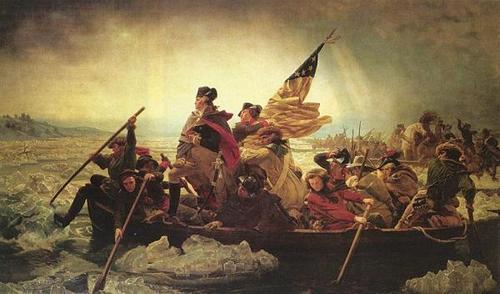
So why did they despise each other? And did James Monroe indirectly help kill George Washington?
After the Revolution, Monroe entered politics and supported the national government being formed under George Washington despite the fact that Monroe had voted against the ratification of the Constitution in 1788. As one of Virginia’s first U.S. Senators, Monroe continued his support of Washington, who was now President, but began to fear that too much power was being placed in the hands of the chief executive and found himself opposing Washington’s Proclamation of Neutrality. When Washington appointed Monroe as Minister to France in 1794, something snapped.
Monroe, like his friend and mentor Thomas Jefferson, loved France. He loved the country itself and, as an American Revolutionary, he found himself in love with the French Revolution. President Washington’s Proclamation of Neutrality insisted on American impartiality towards France and the countries that France was at war with at the time – Britain, The Netherlands, Austria, Prussia, and Sardinia. Monroe was vehemently opposed to neutrality because the French were the first and most important allies of the United States during the Revolution. Plus, James Monroe loved France. In fact, Monroe loved France so much that Secretary of State Edmund Randolph was forced to officially reprimand him due to his glowing compliments about France when Monroe presented his credentials in Paris.
From there, things continued going downhill between Washington and Monroe. Monroe rescued Thomas Paine – another one of America’s early Revolutionaries — who had been thrown into prison in France for criticizing the execution of Louis XVI. Paine was very sick and believed to be close to death, so after securing his release, Monroe arranged for Paine to stay with him at the American Ministerial residence. Paine recovered and proceeded to brutally attack George Washington verbally for allowing him to rot in prison instead of rescuing him as Monroe did. President Washington felt Monroe should have muzzled Paine, or at least repudiated Paine’s disrespectful language towards Washington.
When the United States signed Jay’s Treaty with Great Britain, easing tensions between the U.S. and it’s former colonial power, Washington expected Monroe to be a good Federalist and support the rather unpopular treaty. Monroe opposed it and refused to speak out in support of the treaty. His silence on Jay’s Treaty was the last straw for Washington. The President was furious and noting that he expected a diplomat who would “promote, not thwart, the neutral policy of the Government” recalled Monroe as Minister and ordered him to return to the United States. When Monroe learned of his recall, he said that Washington was “insane”.
Over the next few years, Monroe spent his time at home in Virginia and worked to undermine Washington and criticize the first President. Monroe questioned Washington’s capacity as a leader and felt that he had sold out the French, who had done so much to help the Americans during the Revolutionary War. Washington felt that Monroe was unqualified to critique his Presidency and that Monroe was a hopeless Francophile. In 1797, long before Monroe was considered to be Presidential timber, Washington cautioned, “If Mr. Monroe should ever fill the Chair of Government he may (and it is presumed he would be well enough disposed) let the French Minister frame his speeches”. Washington added, “There is abundant evidence of his being a mere tool in the hands of the French government.”
Monroe wasn’t ready for the “Chair of Government” on a national level, but after Washington retired to Mount Vernon and handed the Presidency over to John Adams, Monroe decided to aim for the “Chair of Government” on a state level. In 1799, Monroe campaigned to become Governor of Virginia and as Monroe’s candidacy was promoted by his friends and supporters, 67-year-old George Washington maintained his estate in Virginia in retirement and tried to do whatever he could to prevent Monroe’s rise. If Monroe was going to be Governor of Washington’s beloved Virginia, then it would practically have to happen over Washington’s dead body.
Washington wasn’t powerful enough to prevent Virginia’s state legislature from electing Monroe as Governor in December 1799, however. On a cold and snowy day, George Washington learned of his former lieutenant’s victory and took off on horseback to tend to Mount Vernon. When Washington returned to his home, cold and soaking wet, he got into an animated discussion with guests about Monroe’s victory and angrily denounced the newly elected Governor. Washington continued his discussions without removing his wet clothing. Already ill with a cold, Washington’s illness worsened. On December 14, 1799, George Washington said his last words, “Tis well” and died.
Monroe continued his public service as Governor of Virginia, a special envoy to France to secure the Louisiana Purchase for Thomas Jefferson, Minister to Great Britain, Governor of Virginia once again, and Secretary of State and Secretary of War under his close friend James Madison. In 1817, it was finally Monroe’s turn to take the “Chair of Government” as Washington had so feared. Supported by Jefferson and Madison, Monroe easily defeated Rufus King and became President, kicking off “The Era of Good Feelings” where Monroe’s popularity was almost unparalleled by any other President and the nation was unified and free of almost any partisan bickering.
In 1820, Monroe ran for re-election and was so enormously popular that no one dared to run against him. In Massachusetts, 85-year-old John Adams -- a stalwart Federalist and George Washington's Vice President -- even supported Monroe. Yet Washington got the last laugh. Running unopposed, Monroe was not only certain of victory, but it looked like he would become the only President besides Washington be elected unanimously by the Electoral College. However, Governor William Plumer of New Hampshire decided to deny Monroe that honor and reserve it for Washington and Washington only. Some stories allege that Plumer did it solely to prevent Monroe from joining Washington as unanimous Electoral College victors and some stories note that Plumer truly disliked President Monroe and voted for John Quincy Adams as a protest. Either way, the records will always show that George Washington was the only President elected unanimously and I think it's pretty clear that Washington would have appreciated that Monroe of all people was prevented from joining him in that exclusive club.
#History#Presidents#George Washington#President Washington#General Washington#James Monroe#President Monroe#Death of George Washington#Virginia#Virginia Presidents#Westmoreland County#1820 Election#American Revolution#Revolutionary War#Crossing the Delaware#Washington Crossing the Delaware#Washington's Crossing of the Delaware#Battle of Trenton#Continental Army#Military History#Presidential Rivals#Politics#Presidential Politics#Presidential Relationships#Presidential Feuds#Federalist Party#Proclamation of Neutrality#France#French Revolution#Thomas Paine
36 notes
·
View notes
Text



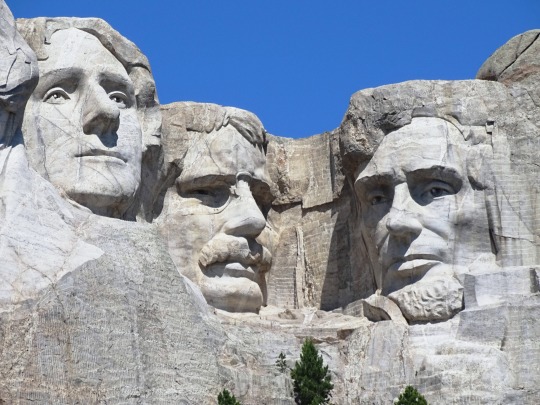
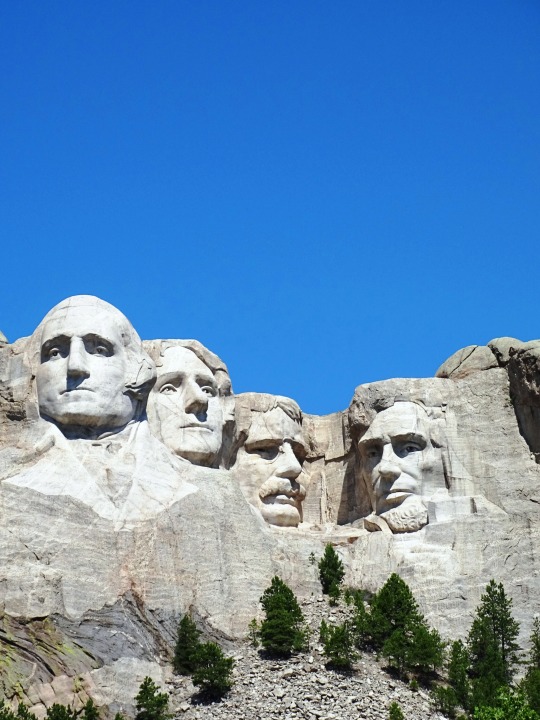

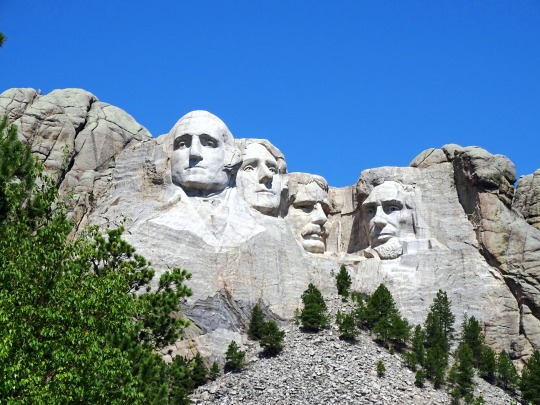

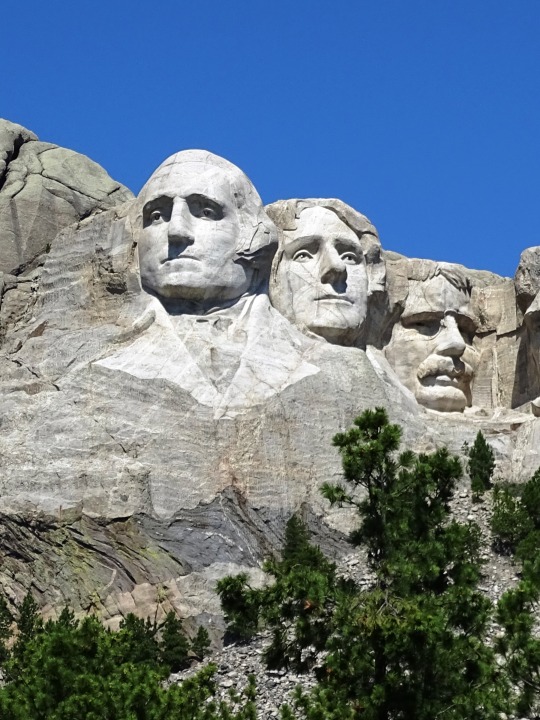


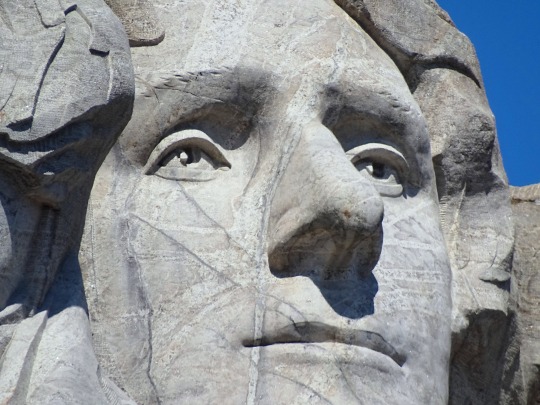
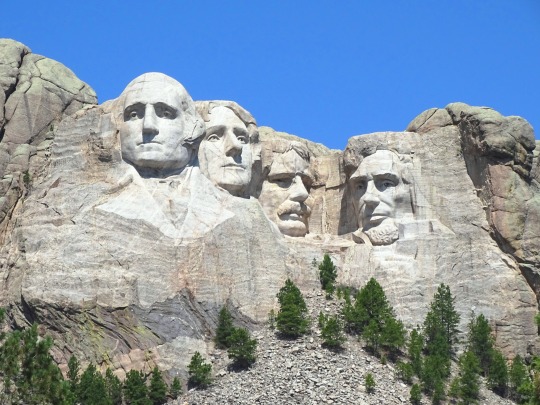
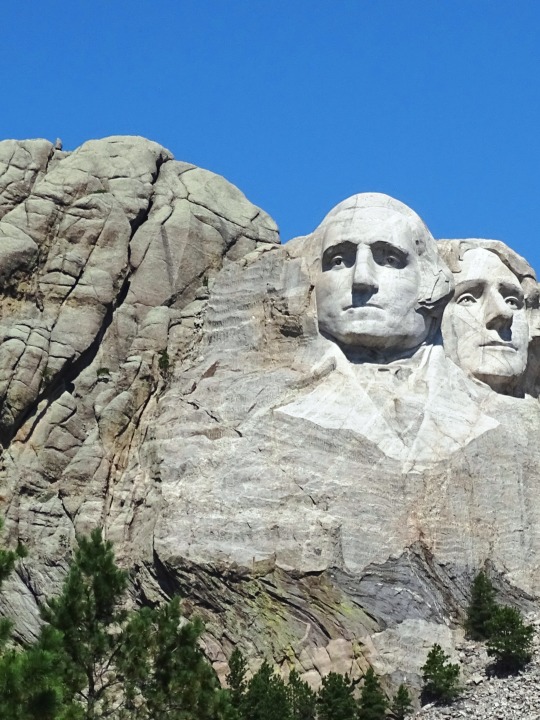
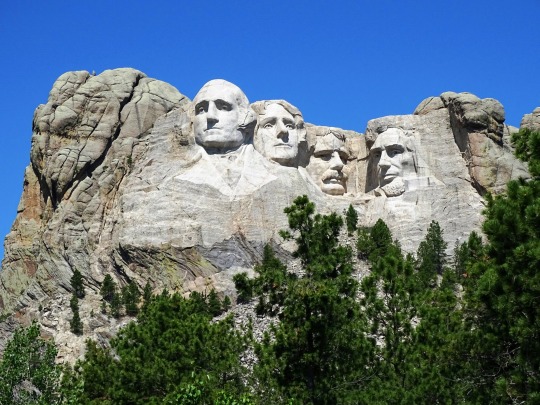
Thomas Jefferson Day
Thomas Jefferson, a founding father of the United States, was born on April 13, 1743. He held many roles and did much during the formative years of the country, including being the main author of the Declaration of Independence and the country’s third president. He wrote his own epitaph, highlighting what he most wanted to be remembered for: “HERE WAS BURIED THOMAS JEFFERSON AUTHOR OF THE DECLARATION OF AMERICAN INDEPENDENCE OF THE STATUTE OF VIRGINIA FOR RELIGIOUS FREEDOM AND FATHER OF THE UNIVERSITY OF VIRGINIA.”
Thomas Jefferson Day is a legal observance, but it is not a public holiday. A joint resolution approved on August 16, 1937, authorized the President of the United States to proclaim April 13 as “Thomas Jefferson’s Birthday” each year. The following year, President Franklin D. Roosevelt issued Presidential Proclamation 2276 to designate the day. Subsequent presidents have made similar proclamations. In Alabama, Thomas Jefferson’s birthday is officially celebrated on Presidents’ Day, along with George Washington’s.
Thomas Jefferson was born at the Shadwell plantation in Albemarle County, Virginia. His mother, Jane Randolph Jefferson, was from a prominent Virginia family, and his father, Peter Jefferson, was a planter and surveyor. After graduating from the College of William and Mary in 1762, he began studying law. As there weren’t official law schools at the time, Jefferson studied under a Virginia attorney. He began his work as a lawyer in 1767.
He married Martha Wayles Skelton on January 1, 1772. They had six children, but only two daughters lived to adulthood. Martha died in 1782 at the age of 33, and Jefferson never remarried. Besides keeping himself busy with politics throughout his life, he had many other interests, including gardening, architecture, music, and reading.
Jefferson was a member of colonial Virginia’s House of Burgesses between 1769 and 1775. He wrote “A Summary View of the Rights of British America” in 1774, which brought him to a wider audience. It said that the British Parliament didn’t have the right to use authority over the colonies. He was then selected to be a delegate to the Second Continental Congress. During this time, a panel of five was chosen to draft the Declaration of Independence. Of the five, which also included John Adams and Benjamin Franklin, Jefferson was chosen to write the draft. It was adopted on July 4, 1776.
In the fall of 1776, Jefferson resigned from the Continental Congress and was elected to the Virginia House of Delegates, which was formerly the House of Burgesses. In the late 1770s, he drafted the Virginia Statute for Religious Freedom. It was a notable forerunner to the First Amendment, and Jefferson thought it was one of his most substantial contributions, being important enough to include in his epitaph. After his time in the Virginia House of Delegates, he was Governor of Virginia from 1779 to 1781.
Following the Revolutionary War, Jefferson was part of Congress, which was known as the Congress of the Confederation at the time. He served from 1783 to 1784, and then became Minister to France in 1785, taking over the position that Benjamin Franklin had held. Because he was overseas, he was not able to attend the Constitutional Convention in 1787.
In the fall of 1789, Thomas Jefferson returned to America and became the first secretary of state. He helped found the Democratic-Republican Party, which opposed Alexander Hamilton’s Federalist Party, a party which wanted a strong central government with strong powers over the economy. Jefferson believed in a federal government with a limited role and believed in strong state and local governments.
He ran for president in 1796 and received the largest amount of votes after John Adams, so he became vice president. He ran against Adams again in 1800, and this time beat him. But his electoral vote count tied that of his running mate, Aaron Burr, and it was up to the House of Representatives to declare Jefferson as president. Because of this, the Twelfth Amendment, which stipulated separate voting for president and vice president, was ratified in 1804.
Jefferson served two terms as president and was in office from 1801 to 1809. During his first term, in 1803, he helped orchestrate the Louisiana Purchase, in which the size of the United States doubled with the purchase of land for $15 million from France. Jefferson sent Meriwether Lewis and William Clark on an expedition, known as the Corps of Discovery, to explore the new land. With this trip, information was gathered about geography, plant and animal life, and American Indian tribes. During his second term, which he secured with over 70% of the popular vote, Jefferson worked to keep the country out of the Napoleonic Wars. He implemented the Embargo of 1807 after merchant ships were getting harassed by France and Britain. It was an unpopular move, though, as it shut down American trade and hurt the economy; it was repealed in 1809. Jefferson did not run for a third term in 1808.
After his presidency, Jefferson retired to his home, Monticello. “Monticello” means “little mountain” in Italian. Indeed the home is located on a small mountain, on the edge of the Shadwell property where Jefferson was born. He had begun clearing the area for a home in 1768. He designed the home and gardens himself, and he continually worked on the house throughout his life. Art and gadgets filled the rooms, and he kept records of everything that went on at the plantation.
During his retirement years, he also helped found the University of Virginia. He helped design both its buildings and its curriculum. He also made sure it wasn’t a religious school and that there wasn’t a religious litmus test in order to attend it.
In 1815, he sold his 6,700 volume personal library to Congress, to replace the books that had been destroyed by the British in the War of 1812, when they burned the Capitol, which housed the Library of Congress at the time. Jefferson’s books became the foundation of what became the Library of Congress’s new library.
Although Jefferson is revered as one of the founding fathers, he is not a man without contradictions and shortcomings. He was a promoter of liberty and wrote “all men are created equal,” but was a slave owner throughout his whole life, during which he owned a total of about 600 slaves. He believed blacks were inferior humans and didn’t think coexistence would be possible if they were free. And although he never remarried after the loss of his beloved wife, Martha, he went on to father more children with one of his slaves, Sally Hemings. Some of the slaves that were in his bloodline were freed after his death, but most of his slaves were sold.
Thomas Jefferson passed away at Monticello at the age of 83, on July 4, 1826, on the 50th anniversary of the adoption of the Declaration of Independence. As if the date of his death wasn’t ironic enough, fellow founding father John Adams died on the same day. Thomas Jefferson died first, but Adams did not know that Jefferson had died, and his last words were “Thomas Jefferson survives.” Jefferson was buried at Monticello. Monticello was sold off following his death to pay debts, but a nonprofit organization acquired it in the twentieth century and it was opened to the public in 1954.
Source
#Thomas Jefferson Day#13 April 1743#anniversary#US history#born#birthday#Mount Rushmore National Memorial#controversial memorial#USA#controversy#Black Hills#South Dakota#Gutzon Borglum#summer 2019#original photography#tourist attraction#landmark#landscape#nature#NationalThomasJeffersonDay#Thomas Jefferson#US President#Teddy Roosevelt#Theodore Roosevelt#Abraham Lincoln#George Washington#North Central Region#Great Plains#travel#vacation
12 notes
·
View notes
Text

Magnus Chase
@magnus-falafelking (On Hiatus)
@rhymeswithswaggness
@numberonefalafelfanblog
Alex Fierro
@alex-fierro-pr-nightmare
@sharpwitandwire
@alex-f13rro (inactive)
@child-of-mischief-and-swag
@pottery-withsnakes
Mallory Keen
@mallory-keen-to-kill
Halfborn Gunderson
@halfbornhalfdead (On hiatus)
Thomas Jefferson Jr
@thomas-jefferson-jr (inactive?)
Samirah Al Abbas
@that-hijabi-loki-spawn (On hiatus)
@sam-the-valkyrie
@definitely-a-geometry-teacher

Amir Fadlan
@amir-fadlan-falafelmaker
Gunilla
@bhlh (On Hiatus)
Blitzen
@blitzen-imnot-that-short (Inactive)
Jack
@sword-of-summer-3000
@sword-of-summer-hits (inactive)
Natalie Chase
@deadmomclubattendee
Randolph Chase
@randolph-with-a-phd (On Hiatus)

MCGA Masterpost
Art used in the post dividers is the official character art from Rick Riordan's website. Graphics are by the amazing @saradika-graphics
7 notes
·
View notes
Note
Do you know why Jefferson place a bust of Hamilton in his entrance way? Or why he even had one at the very first place?
According to one of Jefferson's grandchildren;
After gazing a moment at these objects, the eye settled with a deeper interest on busts of Jefferson and Hamilton, by Ceracchi, placed on massive pedestals on each side of the main entrance “opposed in death as in life,” as the surviving original sometimes remarked, with a pensive smile, as he observed the notice they attracted.
Randall, Henry Stephens. The Life of Thomas Jefferson. United States, Derby & Jackson, 1858.


[Jefferson, Randolph, and Trist Family Papers, 1791-1874, #5385-ac, University of Virginia Library, Charlottesville, Va.]
When a guest had questioned the scenery, Jefferson wryly replied that they were “opposed in death as in life.” [x] But despite the vague phrasing, he never gave more of a reason. It is believed by some that it was a metaphor for Hamilton's and Jefferson's divide, yet essentiality in the building of America. Or Jefferson found it amusing, as it is said that his bust was on a green marble pedestal decorated with the signs of the zodiac and the twelve tribes of Israel, towering over Hamilton's. Although Jefferson's bust doesn't survive to this today, but we have a small description of it;
This rough pencil sketch, made by an unknown hand on the verso of a retained copy of a letter written by Jefferson's grandson Thomas Jefferson Randolph in December 1826, is the only extant image of a bust of Jefferson that Giuseppe Ceracchi modeled from life in Philadelphia sometime after 2 Mch. 1791. He intended to incorporate it, with other likenesses of prominent Ameri- cans, into a large monument that was never completed. In Florence during 1793 the artist transformed his original terra cotta study of Jefferson into a larger-than-life bust in marble, writing to Jefferson on 11 Mch. 1794 to report the work was finished.
Jefferson, Thomas. The Papers of Thomas Jefferson, Volume 28: 1 January 1794 to 29 February 1796. United States, Princeton University Press, 2018.
We luckily still have Hamilton's to this day, stylized in a Roman form by Giuseppe Ceracchi. When Ceracchi took a visit to the US in 1791-92, he proposed a monument in honor of the Revolution and appealed to Congress to finance the project. Ceracchi had attempted to raise the funds for the memorial, and Jefferson endorsed him and told Robert Livingston that he was; “a very celebrated sculptor from Rome.” [x] But unfortunately, Congress closed the proposal on May 7th, 1792.
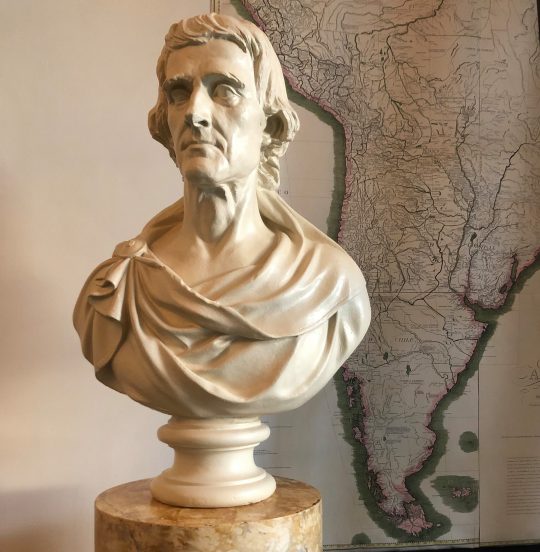
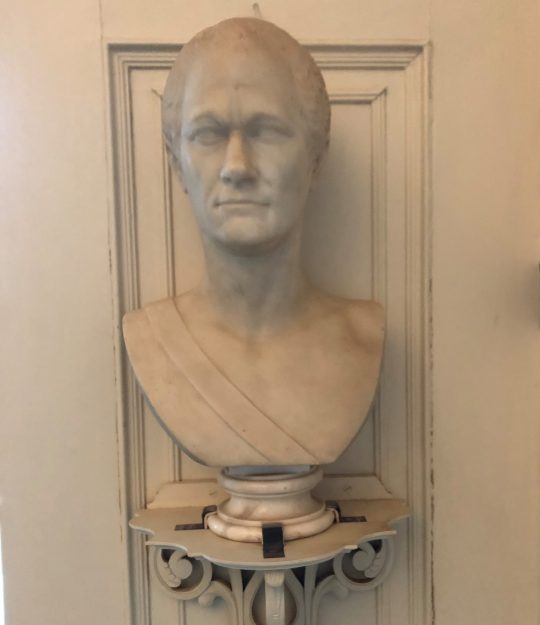
Today, Jefferson's bust has been replaced with a copy that you can find at Monticello.
#amrev#american history#alexander hamilton#historical alexander hamilton#thomas jefferson#monticello#history#founding fathers#queries#sincerely anonymous#cicero's history lessons
59 notes
·
View notes
Text
Madison, March 1815
Madison swallowed, forcing his ears to pop as the coach finished climbing the mountaintop and swung into the drive before Monticello. Dolley stretched her arms and back on the seat in front of him, preparing to disembark after the long journey. The shifting of the baggage in the back of the carriage began simultaneously with the carriage door being opened for them.
Two of Jefferson’s young grandchildren came tearing across the lawn, shouting to each other as they chased a hoop. Dolley smiled at them and remarked, “Jefferson does like to keep his house full, doesn’t he?”
Madison chuckled, finishing a big stretch before reaching out to offer her his arm. Together, they moved towards the entrance. The walls were decorated with Native artifacts of all kinds, shipped to Thomas by Louis and Clark during their expedition years earlier. Thomas had turned his front room into a kind of museum to entertain visitors to his mountain retreat.
“Hail the conquering heroes,” Patsy Randolph greeted, sweeping from the main parlor towards them with a gracious smile. “Welcome to Monticello, Mr. President. Mrs. Madison.”
“Oh, stop you. We’ve had quite enough of that nonsense,” Dolley said, stepping forward to give Patsy a kiss. “Lovely to see you, my dear.”
“Is the great man in?” Madison asked.
Patsy laughed. “Father’s back in his office, still packing his books to ship to Washington. He says he's still organizing and indexing everything. In all honesty, I think he finished ages ago and he’s just saying his goodbyes now, though he won’t admit it.”
“I’m surprised he was willing to part with such a large portion of his library. Grateful, of course, but surprised.” After the Library of Congress had been burned during the British occupation of Washington, Jefferson had generously offered his own collection as a replacement. Congress had jumped at the offer.
“I was floored,” Patsy agreed. “I thought he’d part with me and the grandchildren before ever parting with his books.”
“Nonsense,” Madison said, though when he locked eyes with Patsy, they both grinned with mutual understanding.
“You can go right on back,” Patsy invited. “May I offer you some tea, Mrs. Madison?”
Madison took the first door on the right to cut through the family parlor and made his way into Thomas’s private office. Crates upon crates had turned the space into something of a maze. He pushed forward in the general direction of Jefferson’s desk and called, “Thomas?”
“Just in here,” Thomas’s voice called back.
Navigating through a narrow path in the boxes, he found an opening to where Thomas’s silvery-auburn hair was catching the sunlight from the windows. Thomas’s hand was stroking the spines of a stack of books near his desk; Madison had to force down a smile at the sight. When he managed to take the seat across from Thomas’s desk, Thomas asked, “I’m glad to see you finally escaped from Washington. Was it as exuberant as it sounded?”
“News of peace brought quite an explosion of joy from the populous,” Madison agreed.
Madison would never forget that blessed day.
Hamilton had been seated in his office, pouring over the latest dispatches about their victory in New Orleans along with Burr’s efforts to rally the people around a Canadian advance. New Orleans had greatly whetted the general appetite to attack the British on all fronts, relegating discussions about the report from the Hartford Convention to a mere secondary news item.
Edward Coles had opened the door to the office with wide, hopeful eyes. “Mr. Monroe and Mr. Carroll to see you, sir.”
Hamilton shifted up in his chair, spine straight with expectation. The same hope had begun to swell in his violet eyes. “Henry Carroll?”
Madison had nodded once, deliberately, his breath caught in his chest.
“Should I go?” Hamilton offered.
“No,” Madison said. “You, out of everyone in this country, deserve to hear this first.”
The large chest landed on his wooden desk with a decisive thunk. Coles did the honor of unlocking it and pulling out the cover letter from Henry Clay.
“There are omissions,” Monroe had cautioned. “Significant omissions that will raise more than a few eyebrows in Congress.”
“Eyebrows, perhaps, but not voices,” Hamilton had said. A smile brightened his features, the worry that had burdened his brow lifting as he considered what he’d heard. “You can defend this, Jemmy. This will pass the Senate.”
“I agree,” he’d said. “I agree most emphatically.”
Peace.
Good Lord, peace at last.
The news had traveled through the city like wildfire, popping the thick tension that had laid over every citizen like a needle to an overfilled balloon. Fireworks erupted into the night, music threaded through the air, and champagne poured freely in every house along the street.
“I expected nothing less,” Thomas said, smiling as he brought Madison back from his wandering thoughts. “Congratulations, Jemmy. You must be overjoyed to have completed your trials. Are you already preparing the way for your successor?”
“I’ve a bit more time left on my term, as you well know,” Madison said with a sigh. “But hopefully the most eventful occurrences are now behind us.”
“Hear, hear,” Thomas concurred. “Efforts are underway to unwind that beastly standing army, I hope?”
“Yes, indeed,” Madison agreed, though a tinge of sadness accompanied the thought.
Hamilton had been his rock, his steadying presence as the worst of the war unfolded. Having to shake his hand to bid him farewell had been unexpectedly emotional for him.
Hamilton had gripped his hand firmly, and remarked slyly, “I doubt this is the last you’ll see of me. At last count, I had fifteen different inquiries on my desk requesting advice regarding a Second National Bank.”
“That sounds more of a threat than a reassurance,” Madison had countered.
“Take it as you will,” Hamilton had shrugged, mischief brightening his eyes. With more sincerity, he’d added, “You’re always welcome at the Grange, Jemmy.”
Thomas was nodding in approval at the news that their army was being dismantled. “An unnecessary and dangerous force, to be sure. New Orleans proved that an assembly of volunteers can easily defeat an army when put to the task of defending their homes.”
Madison frowned. “I’m not sure that’s true.”
Thomas’s brow furrowed in return. “No?”
“New Orleans was a lucky circumstance, where Jackson could choose his battle ground. The entrenchment assured the men could be well protected while reloading their firearms, while the British were forced to fight on open land. Not every battle is so ideally situated.” Bladensburg still loomed in his memory; the smell of smoke, the screaming wrenching the air, the terror as that snake of red loomed ever closer.
Thomas gave a dismissive wave of his hand. “No matter. The need has passed, in any event. Although, the three-headed serpent will still need watching.”
Madison’s head cocked to the side, a moment passing before he understood Thomas’s meaning: Hamilton, Burr, and Jackson, the three military heroes to emerge from the conflict. “They are quite popular.”
“Jackson was a great apologist for Burr back in ’07,” Thomas noted. “Will loyalty keep him in second place, do you think? Or will he battle Burr for the honor?”
“I couldn’t say,” Madison said, pondering.
“I suppose the great unanswered question is, what will Hamilton do?”
“Surely, he would intervene if Burr took up the notion of public office again,” Madison said. Then again, he’d seen the two men together recently. Hamilton seemed easier with Burr, a camaraderie existing between them Madison never would have expected. And Burr had looked at Hamilton differently, a sort of gratitude and…loyalty suffusing his gaze.
Monroe had designs on the highest office, of course. His efforts to see the Treaty of Ghent through were meant to push him above the military exploits of the others who might try for the seat. But Hamilton’s position remained strong. Hamilton had been the country’s bedrock as much as Madison’s when it came to military matters, a steadying presence who had defended the capital with his very life. Hamilton had stayed in the city, had tried his best to repel the attack. Just as he’d assured Madison from his hospital bed later, people remembered that they’d tried, even where they’d failed.
Would Hamilton…no. Madison took a breath. He’d said more than once that he had no interest in returning to politics. But that gleam of mischief in his eyes…and his feeling towards Monroe were hardly a secret….
Madison met Thomas’s eyes across the desk.
“We may have a problem.”
#life hereafter#hamilton fanfic#chapter 24#alexander hamilton#james madison#thomas jefferson#james monroe#i live y'all haha
19 notes
·
View notes
Text
• Isabel Townsend Pell, American lesbian and resistant


Daughter of Isabel Audrey Townsend and estate administrator Samuel Osgood Pell, she shared her mother's first name and was born on September 28, 1900.
Isabel Pell tried to conform to what was expected of her by becoming engaged on June 3, 1924, but the engagement soon fell through as Isabel preferred women.
Then, because of her family's status as a wealthy heiress, she became very close to Eleonora Randolph Sears, a descendant of Thomas Jefferson and a tennis player, and Margarett Sargent.
War broke out and the German army occupied France. In 1940, Isabel Pell and her French companion Claire Charles-Roux decided to join the French Resistance and the maquis. They served for four years. In 1942, Isabel and her friend were arrested by the Italians and placed under house arrest in Puget-Théniers (first house on the right of the fortified gate). They were released when the Italians left in 1943, just before the arrival of German troops. Even under surveillance, Isabel Pell managed to act and pass on information to the Resistance during her walks.
When she was released, she disguised herself as a peasant and went into the mountains with her lover Claire Charles-Roux De Forbin La Barben. In 1944, Isabel rescues a contingent of American soldiers surrounded by enemies in Tanaron, a small French town. Pell, wearing a Free French badge, comes out of hiding to lead them to safety.
Back in Auribeau, she continued her resistance activities and joined the American army during the D-Day landings. She joined the 1st Airborne Task Force led by Major General Robert T. Frederick, ensuring communications between French and American forces.


#lgbt#lesbienne#lgbt photo#lgbtq#photografy#lesbian#old photograph lesbian#old lesbian#old phography#old lesbians#resistance#resistencia#world war 2#ww2#wlw community#wlw post
5 notes
·
View notes
Text

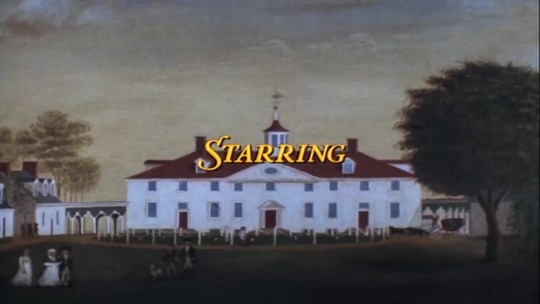

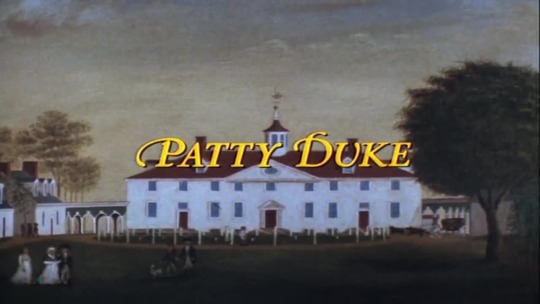
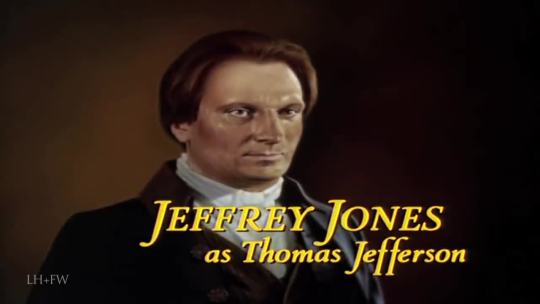


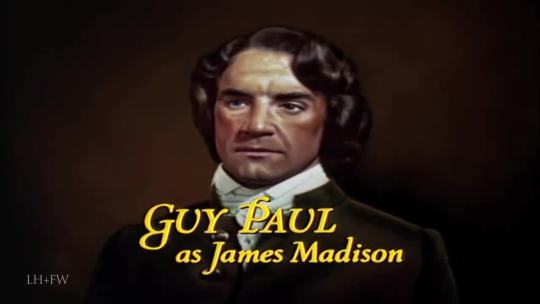
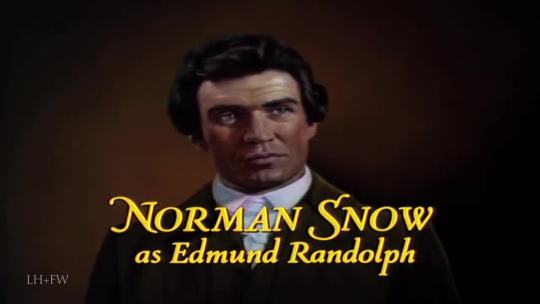
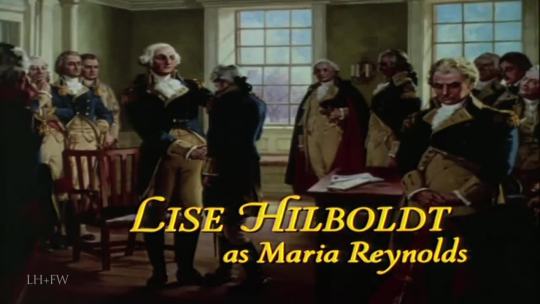
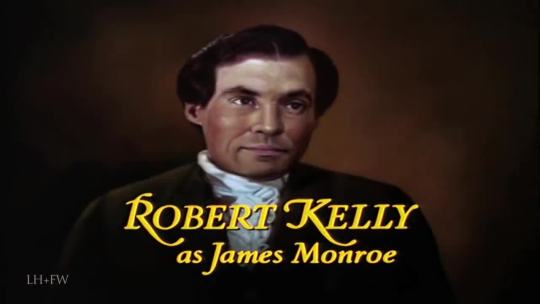





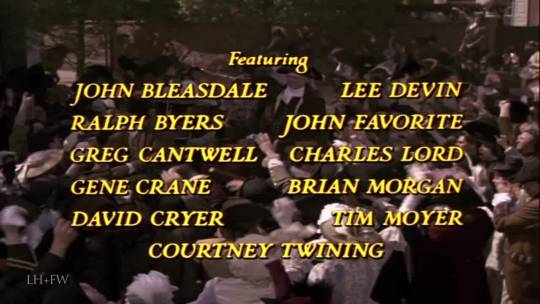

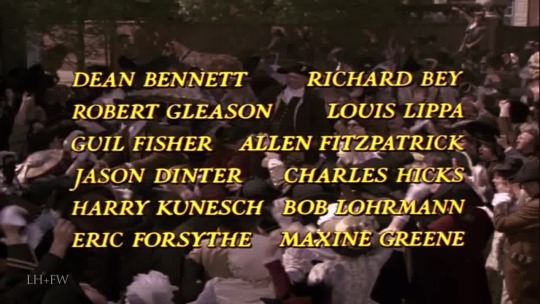

George Washington II: The Forging of a Nation - CBS - September 21-22, 1986
Historical Drama (2 episodes)
Running Time: 190 minutes
Stars:
Barry Bostwick as George Washington – Commander-in-Chief of the Continental Army, and later first President of the United States
Patty Duke Astin as Martha Washington – Wife of George Washington
Jeffrey Jones as Thomas Jefferson
Richard Bekins as Alexander Hamilton
Penny Fuller as Eliza Powel
Eve Gordon as Elizabeth Schuyler Hamilton
Marcia Cross as Anne Bingham
Guy Paul as James Madison
Norman Snow as Edmund Randolph
Robert Kelly as James Monroe
Lise Hilboldt as Maria Reynolds
Haviland Morris as Henrietta Liston
Daniel Davis as Patrick Henry
Richard Fancy as William Duer
Farnham Scott as Henry Knox
Nicholas Kepros as John Jay
#George Washington II: The Forging of a Nation#TV#1986#Historical Drama#CBS#Barry Bostwick#Patty Duke#Jeffrey Jones#Daniel Davis#Richard Bekins#Penny Fuller#Guy Paul#Robert Kelly
9 notes
·
View notes
Text
dont worry about what im doing up at 3 am or why my only creative outlet (outside of the horrors) is making blackout poetry about my guild wars 2 characters.



made with vilmibm's blackout poetry tool, which draws at random from Project Gutenberg.
sources:
Life and Correspondence of David Hume, Volume I (of 2), by John Hill Burton
The Great Events by Famous Historians, Volume VI.
Memoir, Correspondence, And Miscellanies, From The Papers Of Thomas Jefferson, edited by Thomas Jefferson Randolph
#(puts my hand in the water about it)#this engine is great because i get the ol' one-two of reading things i would not otherwise read#such as jeffyboy's memoirs#and then immediately going over them with a digital marker#yuri six-cants tag#ximone atropos tag#trahearne tag#lastborn tag#in that order more or less#verse tag#i guess
4 notes
·
View notes